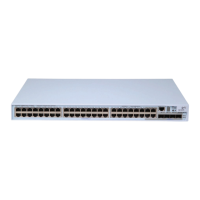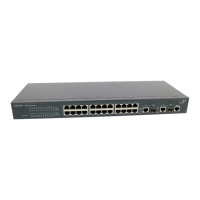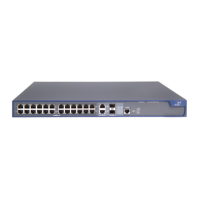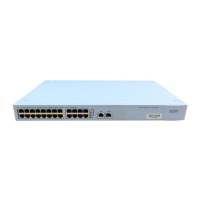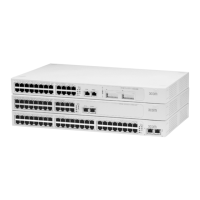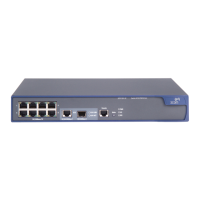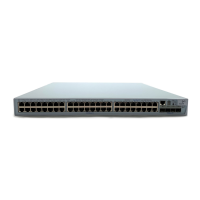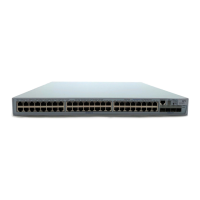1-7
When a packet carrying no 802.1q tag reaches a port, the switch uses the port priority as the 802.1p
precedence value of the received packet, searches for the set of precedence values corresponding to
the port priority of the receiving port in the 802.1p-precedence-to-other-precedence mapping table, and
assigns the set of matching precedence values to the packet.
2) For an 802.1q-tagged packet
For incoming 802.1q tagged packets, you can configure the switch to trust packet priority with the
priority-trust command or to trust port priority (the default). The priority mapping process is as shown
in
Figure 1-5.
Figure 1-5 Assign precedence to received packets in different trust modes
z Trusting port priority
In this mode, the switch replaces the 802.1p precedence value of the received packet with the port
priority, looks up the 802.1p-precedence-to-other-precedence mapping table for the set of precedence
values corresponding to the port priority of the receiving port and assigns the matching precedence
value set to the packet.
z Trusting packet priority
After configuring the switch to trust packet priority on a port, you can specify the trusted priority type,
which can be 802.1p precedence or DSCP precedence.
Table 1-5 describes how your switch handles a
packet received on the port.
Table 1-5 Actions performed when packet priority is trusted
Trusted priority type Description
802.1p precedence
The switch looks up the 802.1p-precedence-to-other-precedence
mapping table for the set of precedence values corresponding to the
802.1p precedence of the packet.
DSCP
The switch looks up the DSCP-precedence-to-other-precedence
mapping table for the set of precedence values corresponding to the
DSCP value of the packet.
The Switch 4200G series provide CoS-precedence-to-other-precedence, and
DSCP-precedence-to-other-precedence mapping tables for priority mapping.
Table 1-6 through Table
1-7 list the default settings of these tables.

